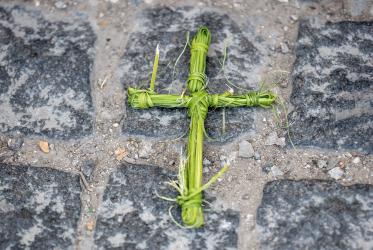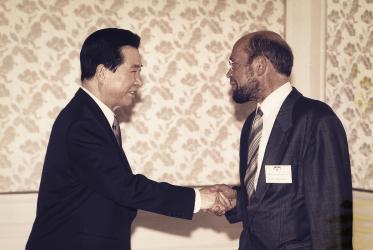Displaying 1 - 20 of 173
Is health the same for all?
17 April 2024
Voice of churches vital during UN women’s rights talks
28 March 2024
2024 Joint North-South Korea Easter Prayer
28 March 2024
Compendium of Promising Practices of African Faith Community Interventions against Paediatric and Adolescent HIV
Executive Summary
23 March 2024
Easter prayers – by Rev. Meghan Johnston Aelabouni
21 March 2024
An Easter prayer – by Mgr William Shomali
14 March 2024
What can churches do to prevent modern slavery?
22 February 2024
Ellyanne Chlystun-Githae Wanjiku to COP28: “listen more to children”
13 December 2023


















